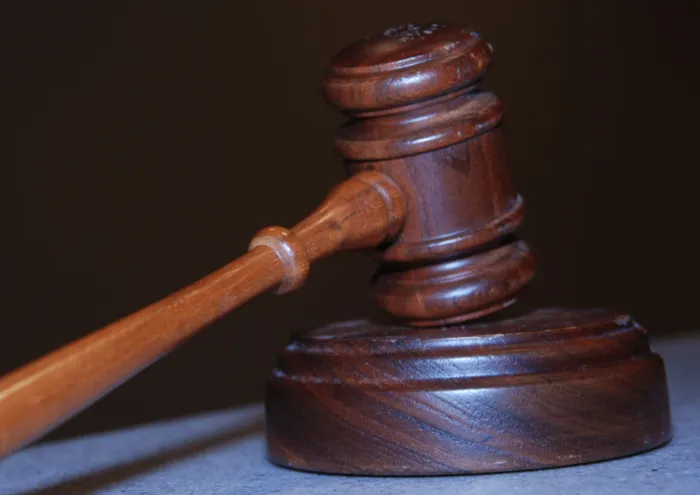Nigeria’s top judge leaves the justice system in a mess

By Abiodun Odusote
Senior Lecturer, University of Lagos
What’s wrong with Nigeria’s justice system?
The events preceding Justice Muhammad’s resignation and the news emanating afterwards call for reflection on the administration of justice in Nigeria. A week before he resigned, 14 Supreme Court justices had accused him of corruption and of not taking their welfare seriously. In addition, he was accused of misplaced priorities and the use of limited financial resources to take his family on vacation.
The justices cited challenges that have almost crippled the efficient adjudication of cases at the court. Some major issues they raised include non-replacement of bad vehicles, poor accommodation, lack of drugs at the Supreme Court clinic and poor electricity supply to the Supreme Court.
Others are the increase in electricity tariff at their residences, little or no increase in the allowances for diesel and lack of internet services to residences and chambers. In his defence, he alluded to limited resources. Then he resigned on health grounds.
Nigeria’s systems are built around individuals rather than process driven. Any process that allows an individual to access or misappropriate N80 billion naira (about US$191 million) must be overhauled.
The time has come for an administrator of the Supreme Court with the primary duty of court administration and welfare. This person should ensure that the complex is well maintained and serviced, with adequate supply of electricity, and that the justices are comfortable and paid automatically, without delay.
Accounts of the court should be audited annually and if the appropriated financial resources are not released on time, the Chief Justice should liaise with the National Assembly and the Ministry of Finance. The Chief Justice should not be bogged down with administrative duties.
What should a new Chief Justice prioritise?
The judiciary and administration of justice system in Nigeria must be overhauled. The Nigerian constitution would have to be amended to enable a strong, efficient and independent judiciary. The integrity and capacity of the judiciary must be strengthened. Nigeria has one Supreme Court for a population of more than 206 million. The justices are overwhelmed and overburdened.
The new Chief Justice must prioritise the decentralisation of the Supreme Court. He cannot do this alone but the Supreme Court may present a position paper on this to the National Assembly and the Presidency. Let there be six other Supreme Courts, located in the six regions.
These Supreme Courts would make final decisions in all matters except very few that would proceed to the Federal Supreme Court at Abuja for significant interpretation of the provisions of the constitution. In addition, matters between the states, the federal government and the National Assembly would go to the Federal Supreme Court.
The Chief Justice must also look into the procedure of appointing justices and judges of the High Court to ensure that only very competent and honest individuals are appointed. Appointed judges should be healthy enough to perform their tasks. I would like any of the big five human resources and consulting firms in Nigeria to be engaged in the process of appointing judges.
At present judges of State High Courts are appointed by Governors on the recommendation of the National Judicial Council. They must have been qualified as a legal practitioner for not less than 10 years. It does not really matter what the individual has been doing since being called to the Bar. The current system leaves room for political manoeuvring.
The third priority is to ensure the limited resources available are managed optimally. Processes should be put in place to ensure transparency and accountability.
Why is the Nigerian judiciary seen as corrupt?
As the judiciary is presently structured, corruption will persist. Corruption is not limited to financial misappropriation but includes all forms of abuse of office. The drivers of corruption in the judiciary include delays in assignment and hearing of cases, abuse of court processes by law enforcement agencies, denial of bail without good reasons, lack of efficient supervision, poor remuneration, method of appointment and promotion of judges, lack of resources and facilities to work with, political meddling by the executive, financial mismanagement, impunity and inadequate sanctions for erring staff, among others.
What can a new Chief Justice do about it?
Corruption in the judiciary is pervasive and complex. It must be addressed through multiple approaches.
The mode of appointment should be revisited. Internal supervision should be strengthened; it should be seen that there is zero tolerance for corruption.
Technology should be applied to the administration of justice in Nigeria, perhaps including a more efficient use and application of electronic hearing, accessible to the public. All originating motions and summons should be filed and heard through electronic platforms. Judgement should also be delivered by electronic medium.
At Nigeria’s Corporate Affairs Commission, corruption has been eliminated through technology. You can now register a company without visiting the commission or bribing anybody. That is what technology can do: fast, efficient and transparent. Application of technology can also improve financial accountability by judges.
This article was originally published in The Conversation.